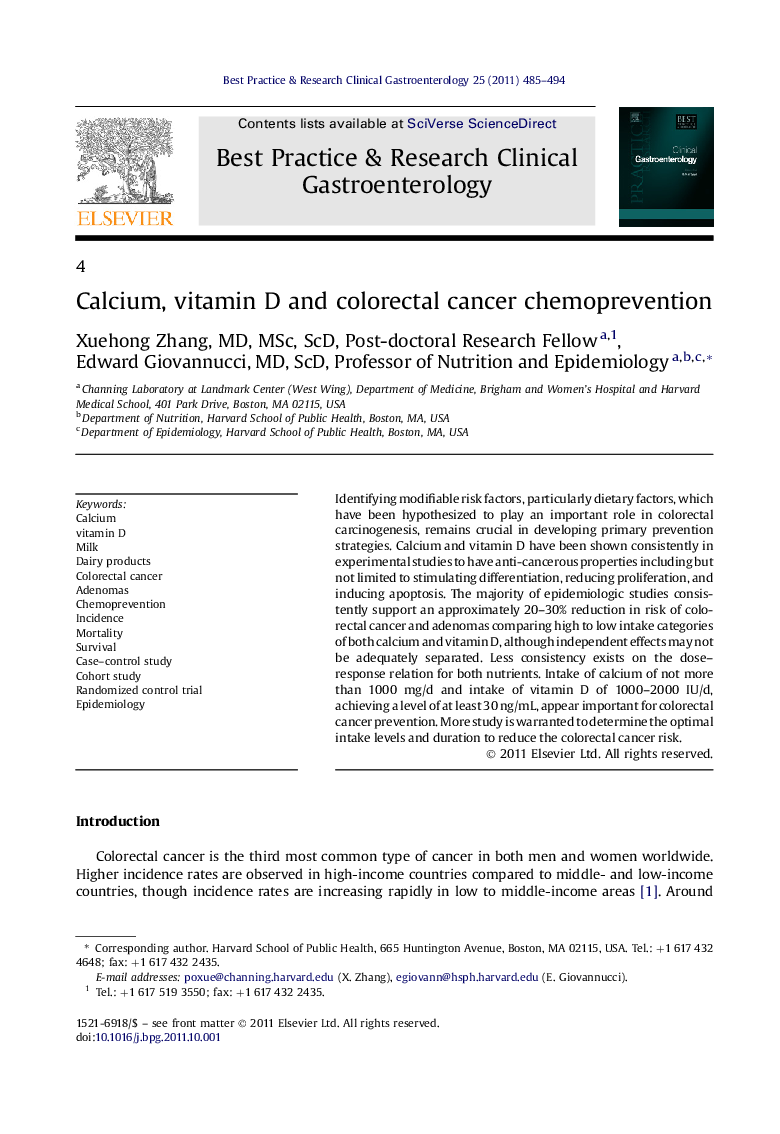| Article ID | Journal | Published Year | Pages | File Type |
|---|---|---|---|---|
| 3254213 | Best Practice & Research Clinical Gastroenterology | 2011 | 10 Pages |
Identifying modifiable risk factors, particularly dietary factors, which have been hypothesized to play an important role in colorectal carcinogenesis, remains crucial in developing primary prevention strategies. Calcium and vitamin D have been shown consistently in experimental studies to have anti-cancerous properties including but not limited to stimulating differentiation, reducing proliferation, and inducing apoptosis. The majority of epidemiologic studies consistently support an approximately 20–30% reduction in risk of colorectal cancer and adenomas comparing high to low intake categories of both calcium and vitamin D, although independent effects may not be adequately separated. Less consistency exists on the dose–response relation for both nutrients. Intake of calcium of not more than 1000 mg/d and intake of vitamin D of 1000–2000 IU/d, achieving a level of at least 30 ng/mL, appear important for colorectal cancer prevention. More study is warranted to determine the optimal intake levels and duration to reduce the colorectal cancer risk.
